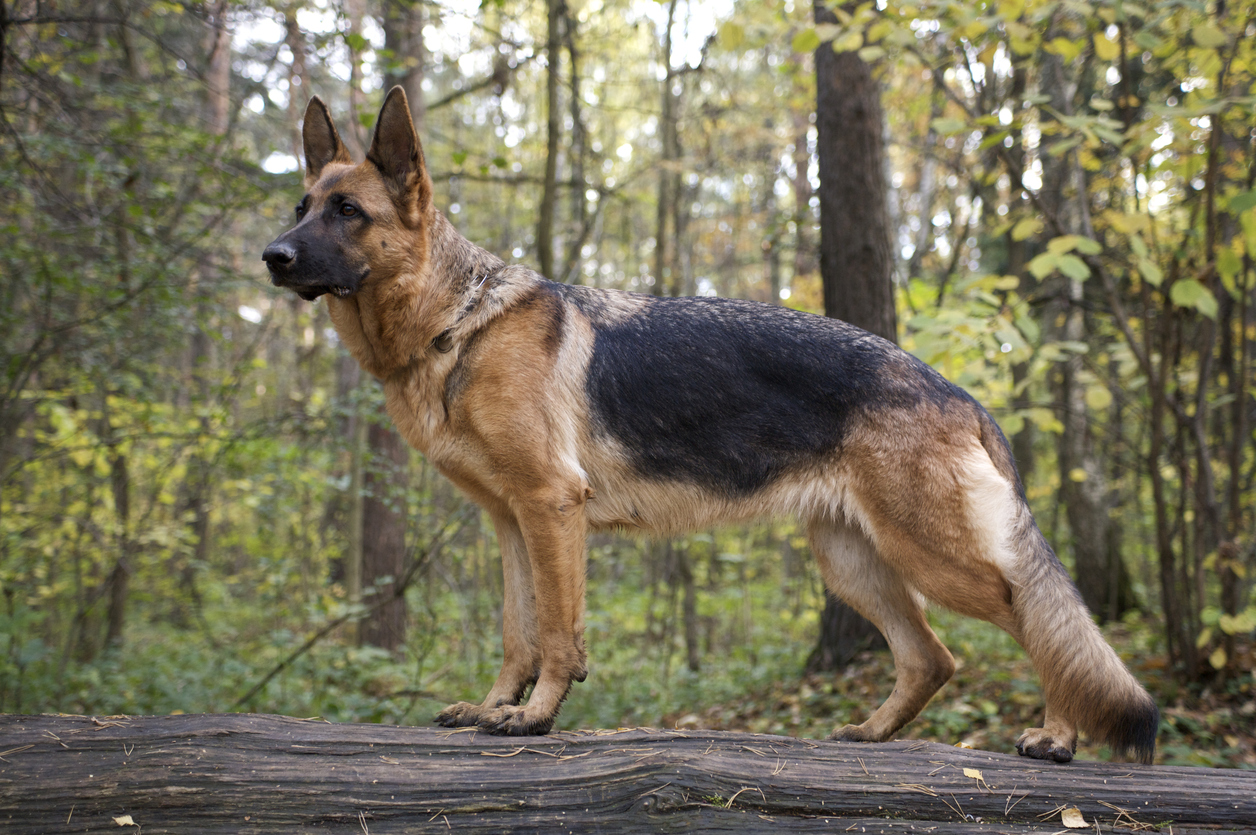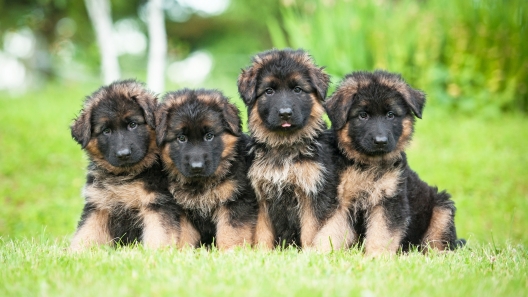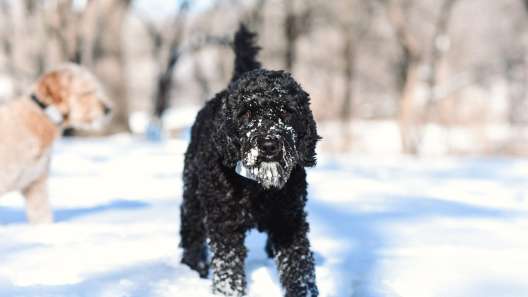-
Activity Level:
high
-
Shedding Level:
moderate
-
Grooming Level:
moderate
-
Trainability:
high
-
Good for Novice Owners:
low
-
Adaptability:
moderate
-
Kid/Pet Friendly:
often
-
Prey Drive:
moderate
-
Watchdog:
very alert
- Average Size: Large
- Average Lifespan: 7-10 years
- Registered?: aca, akc
German Shepherd Dog Breed Information
Overview
Temperament
Adaptability
Health
Owner Experience
Grooming
Activity Level
Size
Life Span
Did You Know?
The German Shepherd is one of the most versatile, well-recognized, and popular dog breeds in the world. The modern German Shepherd is descended from a family of various German herding dogs.
Breed standards were not developed until the late 19th century when Captain Max von Stephanitz, a German cavalry officer, worked with Arthur Meyer and other breeders to develop the ideal German herding dog.
They selectively bred strains of German herding dogs from the central and northern districts of Germany to create what would lead to today’s German Shepherd. Stephanitz and Meyer wrote the breed standard in 1899 and the American Kennel Club recognized the German Shepherd as a member of the Herding Group in 1908.
Although they were originally bred as herding dogs, they were also bred for versatility, which made the German Shepherd an all-around working dog that could excel in a variety of applications. German Shepherds are one of the common dog breeds employed in K-9 units in both police and military applications. They also make great service dogs and, of course, are still awesome herding dogs and farm dogs!
The German Shepherd is a strong-willed and highly intelligent dog. They have a playful, energetic spirit and tend to get along with children, other dogs, and other pets, which makes them a great family companion. A born protector, the German Shepherd will provide a great sense of security for their family while their loving and lively personality will make them fit right in as a companion.
German Shepherds are naturally protective and can be wary of strangers at first. A well-socialized German Shepherd will bark to alert you and tends to warm up to strangers once introduced. If you don’t train your dog to stop barking early on or don’t socialize them enough, barking can become a nuisance.
German Shepherds are dogs that were bred to herd and work. This, plus their high energy, makes them a better fit for homes with fenced yards where they can run. They can adapt well to larger apartments as long as plenty of time is dedicated to ensuring they get enough exercise, mental stimulation, and attention every day.
These dogs are happiest when they are with their family and being active, so they don’t like being left alone for long. A bored, ignored, or under-exercised German Shepherd can often become a destructive one. They also can be sensitive to their surroundings and large gatherings can be off-putting. With a longer coat, they tend to prefer cooler climates and are sensitive to heat.
The German Shepherd is a generally healthy breed, but there are some potential health concerns and good breeding practices make a big difference. Potential health concerns to be aware of in a German Shepherd include hip dysplasia, elbow dysplasia, and degenerative myelopathy.
Reputable breeders will screen their dogs to avoid passing preventable issues to puppies. So, make sure you are asking about the health and genetic history of both parents. You can also ask about any health tests or clearances that have been done.
As a barrel-chested breed, the German Shepherd is also at risk for bloat. Because bloat in dogs can become dangerous quickly, and fatal if the stomach flips, it’s important to know how to reduce the risk and what symptoms to look for so you know when to go to the emergency vet.
While the German Shepherd is highly intelligent and highly trainable, they are generally not recommended for novice owners. If you are a novice dog owner, enroll in puppy training classes or enlist the help of a professional dog trainer; not just for your dog, but for yourself as well.
Training assistance will help you grow in experience and build a strong bond between you and your German Shepherd puppy, which is essential. Also, the GSD has a thirst for training and fulfillment. They get bored easily and especially with repetition, so continued training with your German Shepherd throughout their life will be necessary.
German Shepherds have a medium-to-long double coat. They will shed year-round and heavier as seasons change. Brushing a few times a week is usually sufficient; brushing daily is even better and your GSD will likely love you for it. Bathing is occasional on an as-needed basis.
In addition to coat care, you will also need to take care of your German Shepherd’s nails, ears, and teeth. Cutting your dog’s nails once or twice a month is usually enough to keep them from growing too long. Ear checks weekly with careful cleanings as needed can help prevent ear infections. Brushing your dog’s teeth every day along with cleanings at the vet as needed will help prevent painful dental diseases later in life.
German Shepherds are high-energy working dogs. Not only do they require a lot of daily activity, but they also are a herding breed that was made to run, guard, and observe, so they need a job to do to be happy and healthy.
Daily walks plus playtime, time to run, and other activities are usually enough for a GSD, but they will likely be up for more activity if you are. With their versatility and athleticism, you can try a lot of different activities when puppies finish growing and they are cleared for higher-impact things.
A fully-grown German Shepherd usually stands 22-26 inches tall and weighs 50-90 pounds.
German Shepherds generally live for 7-10 years on average.
The famous Rin-Tin-Tin was actually found by an American Corporal, Lee Duncan, in a bombed-out kennel in France during World War I. Corporal Duncan brought him back to the United States and Rin-Tin-Tin became one of the most famous dog actors in history. The emergence and popularity of Rin-Tin-Tin truly helped put the German Shepherd on the map in the USA.









